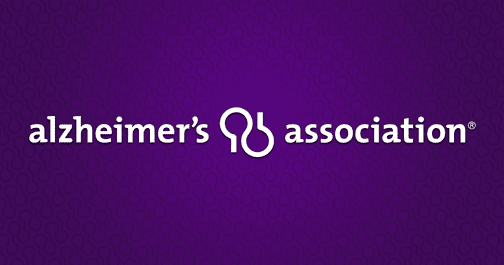More than 5 million Americans live with Alzheimer’s, but less than half are ever diagnosed. Acknowledging why your loved one is acting differently is hard, but early detection and care can make a significant difference, according to a public service announcement recently received at WIZS.
Today’s edition of Town Talk featured Lisa Roberts, Executive Director, of the Alzheimer’s Association of Eastern North Carolina and Bethany Wood, Manager, Walk to End Alzheimer’s of the Eastern NC Chapter.
Click here or on the WIZS logo below to listen to the show.
6 Tips for Approaching Alzheimer’s
If you notice any of the 10 Warning Signs of Alzheimer’s in yourself or someone you know, don’t ignore them. Early detection makes a world of difference, and so does the way you approach the conversation with a family member or a friend. If you notice a pattern of memory loss or behavioral issues that are affecting one’s ability to function, it’s essential to talk about it so they can be evaluated. The Alzheimer’s Association offers these tips:
1. Have the conversation as early as possible – Ideally, it’s best to talk about the Alzheimer’s warning signs with a family member or friend before they even occur, so that you can understand how someone would want you to approach them about it. However, many people aren’t planning for Alzheimer’s before it happens. If you’re noticing signs of dementia, start a conversation as soon as possible, while mental functioning is at its highest and before a crisis occurs.
2. Think about who’s best suited to initiate the conversation – There might be a certain family member, friend or trusted advisor who holds sway. Consider asking this person to step in and plan around how to have the most supportive and productive conversation.
3. Practice conversation starters – The following phrases can help broach the conversation.
a. “Would you want me to say something if I ever noticed any changes in your behavior that worried me?”
b. “I’ve noticed a few changes in your behavior lately, and I wanted to see if you’ve noticed these changes as well?”
c. “Lately I’ve been considering my own long-term care plans, and I wanted to see if you’ve done any advance planning you can share with me?”
4. Offer your support and companionship – Seeing a doctor to discuss observed warning signs of Alzheimer’s may create anxiety. Let your family member or friend know that you’re willing to accompany them to the appointment and any follow-up assessments. Offer your continuous support throughout the diagnosis process.
5. Anticipate gaps in self-awareness – It can be the case that someone showing the warning signs of Alzheimer’s is unable to recognize those signs in themselves. Be prepared to navigate confusion, denial and withdrawal, as people may not want to accept that their mental functioning is declining.
6. Recognize the conversation may not go as planned – Despite your best intentions, a family member may not be open to discussing memory or cognitive concerns. They may get angry, upset, and defensive or simply refuse to talk about it. Unless it’s a crisis situation, don’t force the conversation. Take a step back, regroup and revisit the subject in a week or two. If they still refuse to get help, consult their physician or the Alzheimer’s Association for strategies that may help.
10 WAYS TO LOVE YOUR BRAIN
START NOW. It’s never too late or too early to incorporate healthy habits.
BUTT OUT: Smoking increases risk of cognitive decline. Quitting smoking can reduce risk to levels comparable to those who have not smoked.
FOLLOW YOUR HEART: Risk factors for cardiovascular disease and stroke – obesity, high blood pressure and diabetes – negatively impact your cognitive health.
HEADS UP: Brain injury can raise risk of cognitive decline and dementia. Wear a seat belt and use a helmet when playing contact sports or riding a bike.
FUEL UP RIGHT: Eat a balanced diet that is higher in vegetables and fruit to help reduce the risk of cognitive decline.
CATCH SOME ZZZ’S: Not getting enough sleep may result in problems with memory and thinking.
TAKE CARE OF YOUR MENTAL HEALTH: Some studies link depression with cognitive decline, so seek treatment if you have depression, anxiety or stress.
BUDDY UP: Staying socially engaged may support brain health. Find ways to be part of your local community or share activities with friends and family.
STUMP YOURSELF: Challenge your mind. Build a piece of furniture. Play games of strategy, like bridge.
BREAK A SWEAT: Engage in regular cardiovascular exercise that elevates heart rate and increases blood flow. Studies have found that physical activity reduces risk of cognitive decline.
HIT THE BOOKS: Formal education will help reduce risk of cognitive decline and dementia. Take a class at a local college, community center or online. Growing evidence indicates that people can reduce their risk of cognitive decline by adopting key lifestyle habits. When possible, combine these habits to achieve maximum benefit for the brain and body. Visit alz.org/10ways to learn more.
